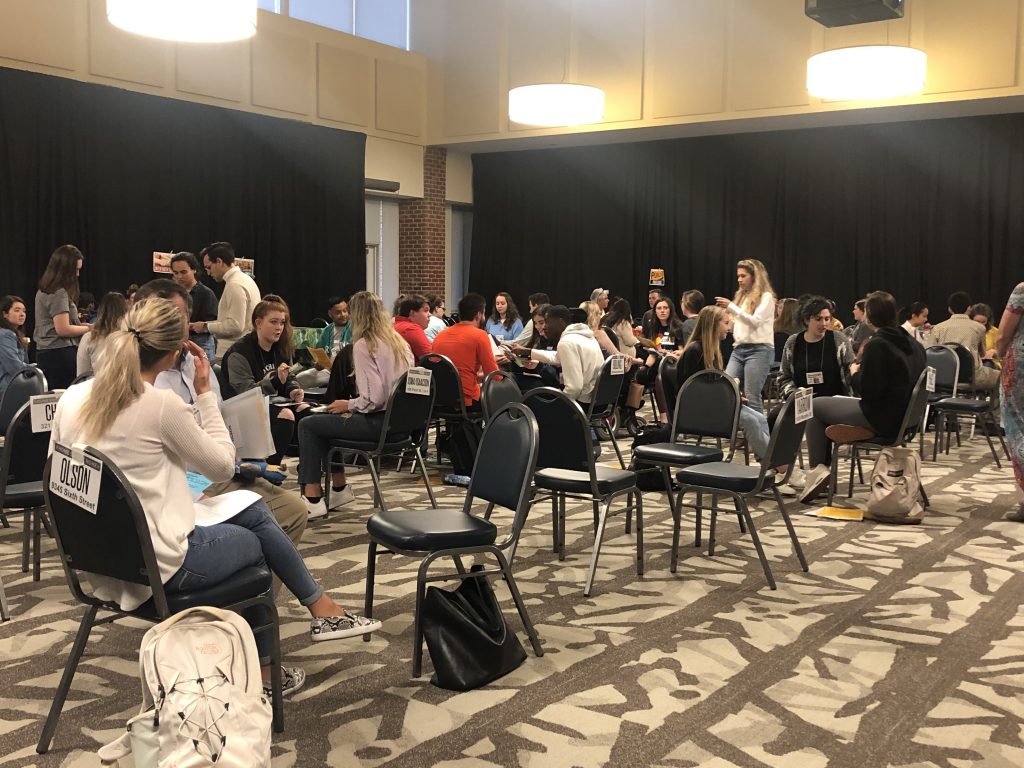Liberty University students and Lynchburg area residents gathered in the Montview Alumni Ballroom Tuesday, Feb. 4, to engage in a simulation of a city in poverty, called “Unlearning Poverty,” hoping to educate participants and help them see poverty in a new light.
The simulation began with a video with information about poverty, mentioning topics such as food stamps, the safety net system and the impact of giving cash to people in poverty.
Cassie Penha, associate director of Local and Domestic Engagement at LU Serve welcomed the crowd.
“We’re really excited you chose to come on this journey,” Penha said.
Penha then introduced Karen Tanner, unit coordinator and extension agent of Family and Consumer Sciences at the Virginia Cooperative Extension. Tanner led the simulation and guided the participants through the process.
“This is a great opportunity for you to immerse yourself and see what it’s like to live in poverty,” Tanner said.
Groups of three to four sets of chairs made up the simulated “cities” where participants could sit. Each group of chairs made a family, and the entire group of chairs was the neighborhood.
Around the edge of the room were “community resources,” which represented businesses and organizations like the school, bank and grocery store.
Each “family” was given a packet of information describing each member of the home, whether or not they had a job, how old they were and any other facts about the impoverished family.
The simulation was supposed to represent an entire month, each week consisting of 15-minute time slots. Before week one, Tanner warned participants against viewing the simulation the wrong way.
“This is a simulation, not a game,” Tanner said. “Poverty is not a game.”
As soon as the first week began, members of the family spread around the room to do their activities. If one participant was given a child’s identity, most of the time had to be spent at school, where the child would often worry about the financial situation at home.
Most of the adults in poverty had no jobs. Finding ways to make money to pay the bills and buy groceries was challenging. Even for those with jobs, half of the week’s allotted time passed at the employer’s booth, resulting in less time to care for tasks that had to be done.
As the “weeks” passed in 15-minute increments, the families made decisions to make their lives better, but sometimes their attempts would fail. When families had no money left or were evicted, the homeless shelter was their landing place.
As the simulation played out, even children had to do what was necessary to live. Some children had to sell drugs to make money. Another child went to juvenile detention for being armed at school.
While it was only a simulation, the activity helped participants look at poverty in a new light.
LU Serve plans to host their second Unlearning Poverty event Feb. 13 at 4:30 p.m. in the Montview Alumni Ballroom.
Locklear is a news reporter. Follow him on Twitter.
